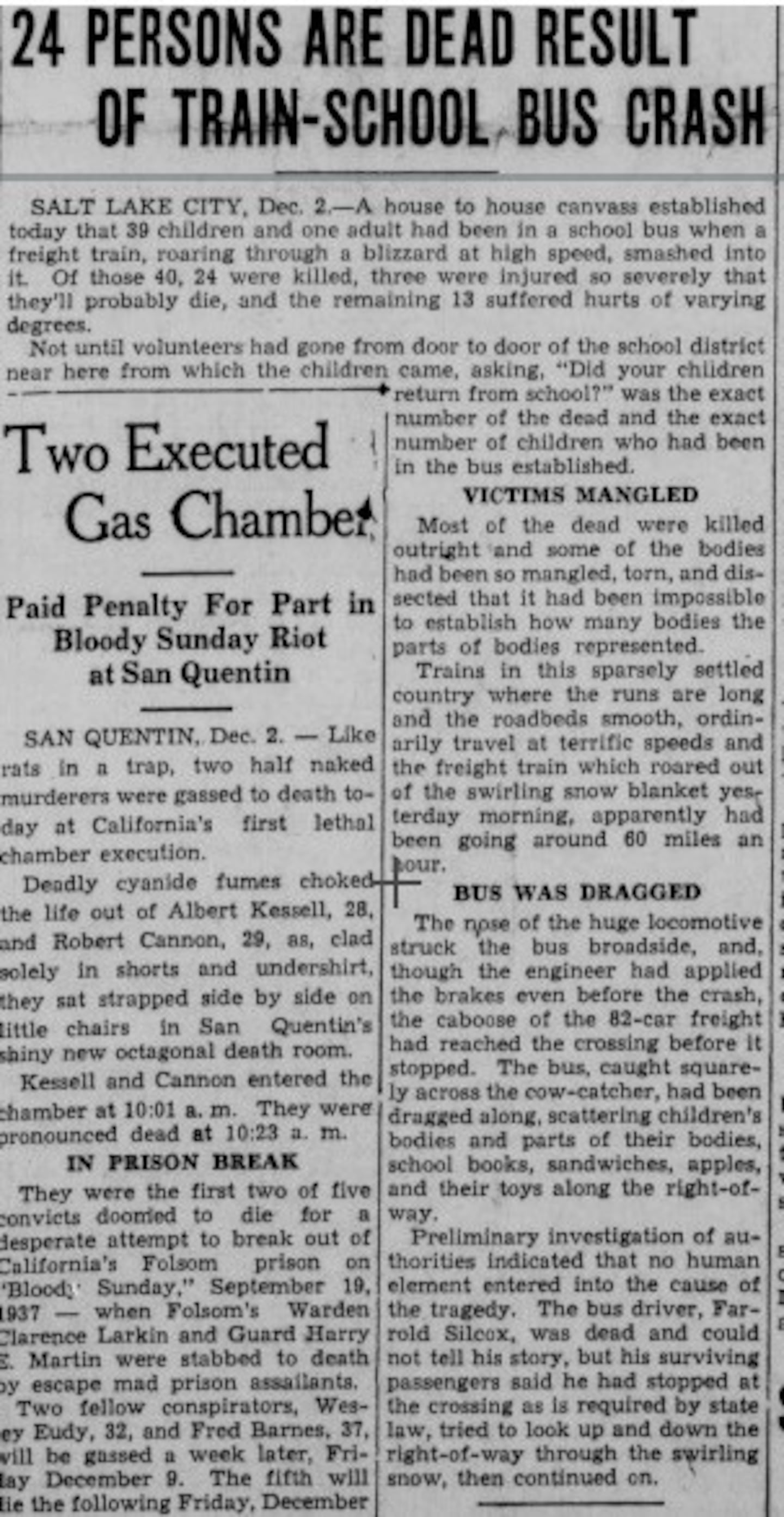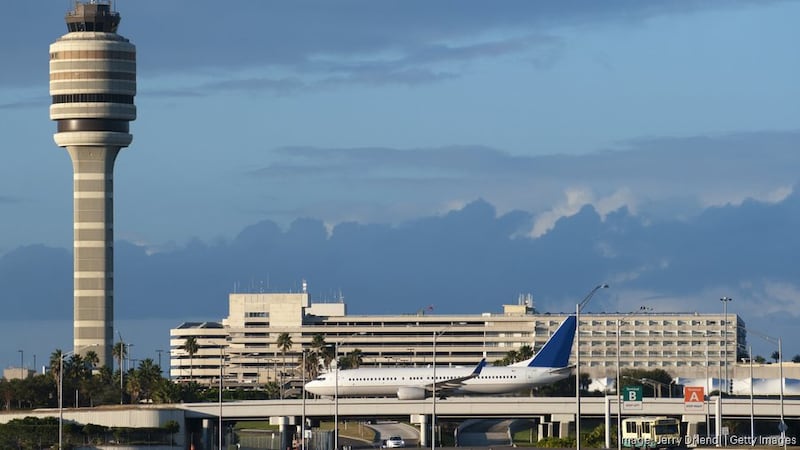School is back in session across Central Florida and, before you know it, you’ll be stuck behind a school bus at the many train track crossings across Florida.
Ever wondered why school buses stop at railroad tracks?
A single bus crash 83 years ago was the inspiration for laws in all 50 states that require bus drivers to not only come to a full stop at all railroad crossings but they’re required to open their front door and driver side window to LISTEN in addition to look for oncoming trains.
It was the height of a winter blizzard in Sandy, Utah on December 1st in 1938 when school bus driver Slim Silcox and 39 students being driven to Jordan High School paused before crossing the tracks, but Silcox failed to see or hear an 82-car freight train until it was too late.
The train t-boned the center of the bus at full speed.
Even though the train engineer hit the brakes before colliding with the bus, the caboose made it all the way to the intersection before the train finally came to a stop, dragging the bus more than a half-mile before finally coming to a full stop.
First responders and witnesses report the horrific sight of children’s bodies, children’s body parts, books, school lunches and jackets scattered along the side of the tracks.
In 1938, we didn’t have social media and phones were pretty rudimentary, so the state was not able to identify the dead until volunteers went door to door to ask parents if their children came home from school that day.
All told, 24 children were killed instantly; another 3 died from their injuries in the following days.
Bus driver Slim Silcox was also killed instantly.
That one crash 83 years ago triggered the rule that drivers must not only stop, even on sunny days, and they must open their door and window to look AND LISTEN for oncoming trains.
And perhaps because of the implementation of that rule, that one crash in 1938 is still considered the deadliest school bus accident in US history.
So as you’re stuck behind a school bus stopping at the train tracks, slowing down your drive, instead of getting angry, maybe take a moment to imagine the grisly scene that crash must have been during that December 1938 Utah blizzard.
©2021 Cox Media Group












